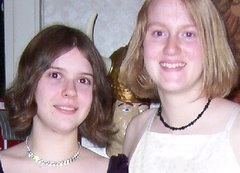16A:152:001 United States in World Affairs
Time & Location: 11:00A - 1:20P M
The instructor: David Schoenbaum
Description:
A semester-length overview of how, where, when and why Americans have interacted with the world, with an eye to institutions, processes and decision-making; the past as prologue; and future challenges extending from international security, the globalized economy and the conundrums of the Middle East and China, to energy, the environment and public health. A series of guest lecturers, with experience in the White House, State and Defense Departments, Congress, the military, media, business, NGO’s and think tanks, will reflect on what they learned there. Readings will include basic documents, solid journalism and historical background. There will be a mid-term and a final exam.
This class is both a regular course offering and an ongoing public event. Presentations by distinguished visitors will be open to the public. The class will meet Mondays from 11:00 to 1:30 at the Englert Theater (221 East Washington) and the Iowa City Public Library, on a schedule still to be determined. Registered students will be notified via e-mail of the place of the first class meeting.
045:175:001 Revolution in American Culture
Instructor: Laura Rigal
Time & Location: 2:30P - 3:45P MW N221 LC
Beginning with the Revolutionary War, the recurrent possibility of revolution at home or abroad has been a source of both utopian hope and paranoid anxiety in the United States. By examining the emergence of revolutionary identities in the U.S., this course analyzes the paradox that revolutionary assaults on the social and economic order of the U.S. have often, although not always, worked to reaffirm that order. Students will confront this structural paradox, and will become alert to the recurrence of the binary of revolutionary hope versus counterrevolutionary paranoia in U.S. cultural forms. They will confront the religious roots of revolutionary acts and fantasies in the U.S., and the way in which the plot-line of the frontier (or the western) came to inherit the dynamics of revolution in America.
Readings, lectures, and discussion will be organized around specific sites of revolutionary actions, practices, and representations. These will include many but not all of the following: the American Revolution; the Whiskey Rebellion; the the Haitian (and later Cuban) Revolutions; Native American movements such as the Red Stick revolt and the Ghost Dance religion; slave revolts prior to the Civil War; the Mexican Revolution; the Mexican Revolution and responses to the Mexican-American War; the Old Left labor and populist movements of the late-nineteenth century, through the emergence of the New Left in the second half of the 20th century. Materials will include the Gothic novel Wieland, or The Transformation; the early American utopian fantasy Lithconia; Eric Foner’s Tom Paine and Revolutionary America;Joel Martin’s Sacred Revolt; James Mooney The Ghost Dance Religion; Herman Melville’s Benito Cereno and The Amistad; John Rollin Ridge’s Life and Adventures of Joaquin Murrieta and Viva Zapata (or The Fugitive); the autobiography of Emma Goldman, and films such as Reds and The Weather Underground. Course requirements include one short paper, a longer research paper, a midterm, and a final exam.
045:090:001 Seminar in American Cultural Studies: Diversity and American Identities
Instructor: Deborah E Whaley
Time & Location: 9:30A - 10:45A TTh E146 AJB
Description:
Diversity and American Identities will familiarize you with interdisciplinary approaches to understanding the history and culture(s) of America, concentrating in particular on citizenship, cultural identities, and social stratification. We will use cultural theory and criticism, cultural and social history, autobiography, literature, art, and documentary film to examine a variety of American identities. In particular, we will explore conflict and commonality among groups in the U.S. while focusing on the following variables: race, ethnicity, gender, class, and sexualities. The course requires active discussion, 1 page bi-weekly response papers (You may also write or present a more experimental response to the required reading, for example you may write a poem, construct an original art work, short story, give an oral presentation, or do a short article or book report), a midterm exam, and a final research paper of 10-12 pages.
045:095 Honors Project
Instructor: Rob Latham
045:250:001 Seminar: Topics in American Studies
Instructor: Rob Latham
Time & Location: Time & Location: 6:00P - 8:30P M 216 EPB
Description:
This course will offer a solid grounding in cultural studies methods by means of an exploration of theories and practices of subcultures. Gelder & Thornton’s Subcultures Reader will provide the backbone for the class, as it covers major traditions within the field, ranging from the urban ethnography of the 1940s Chicago School, through the innovative fusion of marxist and semiotic approaches by the Birmingham Center for Contemporary Cultural Studies in the 1960s and ‘70s, through more recent and eclectic interventions. Because it is what I know best, our primary materials will relate to youth subcultural movements, principally though not exclusively American, of the 1970s-1990s (punks, skinheads, goths, rappers, etc.). An abiding concern will be to see how youth subcultures, as popular generational forms of identification, intersect with other compelling markers of collective identity, especially race, class, gender, and sexuality. To this end, we will survey relevant texts from various media and genres, including fiction, sociology, film, music, and popular fashion, among others. Student work will include a series of short response papers, an in-class presentation on a selected topic, an annotated bibliography relating to an individualized research project, and a final paper. Although the course, as noted, will focus specifically on youth subcultures, I am open to projects that apply the theoretical perspectives we canvass to other subcultural movements, broadly construed.

1 comment:
Well said.
Post a Comment